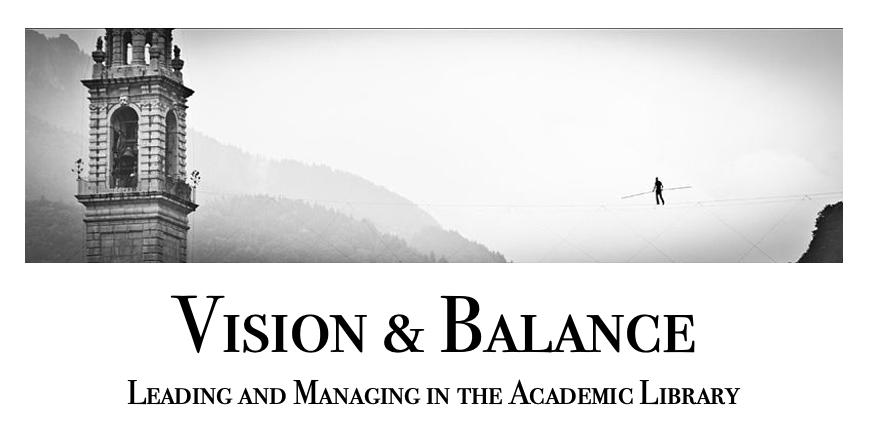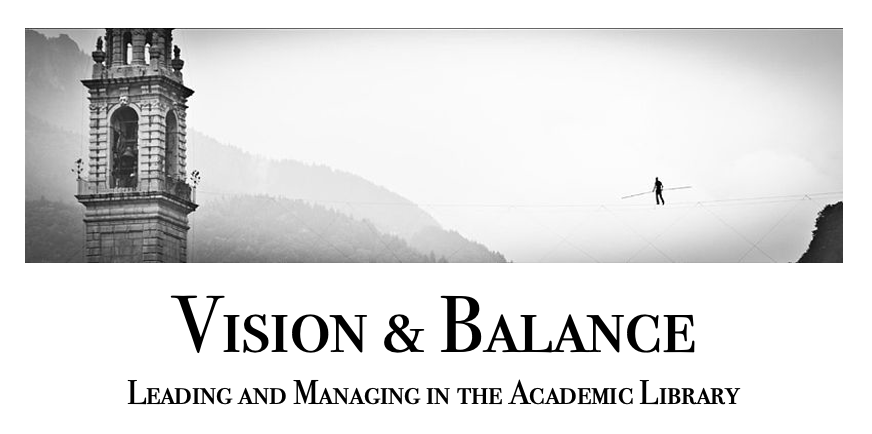Leading a Library During Political Upheaval
Now, more than ever, librarianship needs leaders who can demonstrate wisdom, judgment, and empathy for all the people they lead and all the people their libraries serve.

Everyone knew that the election of Donald Trump would result in some level of disruption once he was inaugurated. But I think most of us were taken by surprise by the sheer scale, depth, and immediacy of the changes he would implement. On his first day he signed 26 executive orders, almost three times as many as his predecessor did on his own first day, and the flow of orders has continued; National Public Radio's website counts a total of 75 as of this morning. The orders have included – as recently as yesterday – a "Temporary Pause of Agency Grant, Loan, and Other Financial Assistance Programs" as well as a freeze on federal hiring in the Executive Branch, a crackdown on illegal immigration, and the termination of all federal diversity, equity, and inclusion programs. These orders (and others surely to come) have had and will continue to have significant impacts on many in the academic library world (especially those in the public sector) for some time to come, and maybe permanently.
As a leader, what should you do in this moment? I have three suggestions:
- Gather and share information both comprehensively and critically. Get as much information about what's happening and what's on the horizon as you reasonably can, while bearing in mind that virtually every source from which you gather is going to be biased to some degree. Some information purveyors will have an interest in downplaying the significance or extent of disruption; others will have an interest in maximizing outrage. Evaluate your information critically before passing it along – don't let yourself become part of a distortion machine.
- Your staff wants reality more than reassurance. In times of disruption, it will always be deeply tempting for leaders to provide words of hope and reassurance – we see our people's distress and anxiety, and we want to relieve it. That's a good impulse, of course, but if it leads us to make promises we can't keep it will only lead to worse distress in the long run. Do you have employees without legal immigration status? You can express solidarity with them and promise to do all you can to help and support them, but you can't promise that they will be safe from arrest in your library. Are you a public college or university library with employees whose jobs are centered on DEI programming? You may or may not be able to promise that their jobs are safe; before offering any assurance in that regard, talk with your institution's HR office to find out what the local government's and campus's strategies are going to be. This is a moment when you will need to draw on the political capital you have built up with your employees in the past by being open, transparent, and sincerely interested in their welfare; they will need to trust you, and whether they do so will be determined by your past behavior as a leader. Misleading them now with false or uninformed assurances will not only serve them badly; it will also come back to bite you in the future.
- Remember that your library is more ideologically diverse than you think it is. Readers of Vision & Balance may remember that I raised this point around Election Day 2024, and it remains a critical one in this particular moment: you may think you know the politics of everyone in your library, but you don't. There will be many in your organization who are freaked out and outraged by what is currently happening in the US government. There will also be some (probably a minority, but some) who have more mixed feelings, and some (a smaller minority) who are exhilarated. You are the leader of all of them, not only those you agree with politically. This doesn't mean that you can't express your own views – though being an organizational leader, and perhaps a college or university official, does put some limits on how you can appropriately do that – but it does mean that you must foster an environment of inclusion that accommodates all of your employees (not to mention your patrons). Whether you yourself are pro-Trump or anti-Trump, you have the same obligations as a leader to your employees who agree with you as you do to those who don't.
We are at the beginning of a complex and difficult period for academia generally and for libraries in particular – especially for those at public institutions and those that rely heavily on federal government funding. Now, more than ever, librarianship needs leaders who can demonstrate wisdom, judgment, and empathy for all the people they lead and all the people their libraries serve.
